By Logan Michael
For as long as I can remember, I’ve always been a politically inclined individual. I’m often painted as overly emotional by friends, too woke by peers, and hopelessly idealistic by teachers. While I’d love to refute such accusations, frankly, they’re true– I care deeply for the underappreciated, disillusioned, alienated, and oppressed, and have no intention of hiding it.
With the wave of explosions across Lebanon, it’s become increasingly clear that regional tensions in the Middle East will continue to rise with no end in sight. The Israeli-Palestinian conflict, being a key issue in the upcoming presidential election, lies entrenched in the mind of every American. Despite this prevalence, traveling across the county to investigate America’s outrage and engaging with our country’s most hearty activists, as I’ve done here, remains an alien concept to most.
With this in mind, I’ve always wondered why so many people seem to think they can’t do anything. Everyone seems to think that ‘the system’ and the ‘way things are’ needs to change, so why do we all sit still? Why don’t the common folk draw on their discontent and act? Why does everyone (and frankly, everything) feel so hopeless?
Admittedly, I, too, am guilty of this bystander behavior. Until very recently, my political passion had only been exerted in an obsessive study of philosophical and theoretical literature. For years, authors like Karl Marx and Albert Camus stained my consciousness, chained me to my desk, and prevented me from acting on my passions. Instead of channeling my grievances into movement, I sat idle, convinced there was nothing I alone could do.
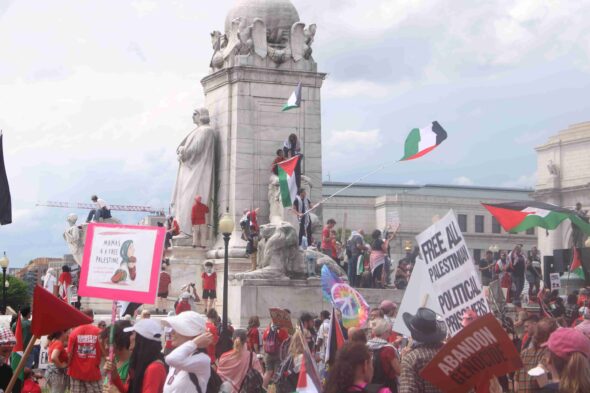
Thankfully, I couldn’t have been farther from the truth: my impulsive decision-making and unbridled passion had plunged me into an opportunity that would be groundbreaking for my development as a photographer, journalist, and activist—something I will never forget.
Various activist organizations from around the states (notably The Answer Coalition and Jewish Voice for Peace, among others) were converging on the capital to express common discontent with the U.S. government’s handling of the Israeli-Palestinian conflict. The University of North Florida’s Students for a Democratic Society chapter, in conjunction with Jacksonville’s Palestine Solidarity Network, planned a ten-hour trip all the way from North Florida to Washington, D.C., to lend their support.
I’ve always admired national initiatives like this, so seeing local activists attending something of this scale was a big deal to me. Upon learning more about these plans, and for reasons still unbeknownst to me, an uneasy wave of excitement and ambition crashed into me. Without thinking over the implications, risks, or commitments of such a trip, I asked if I could tag along.
I had known about the planned demonstration weeks before it was set to happen, and still well before I even considered being there myself, amid thousands of other activists. I had thought that doing something like this was simply out of the question. I’m not the direct-action type; I belong in the library, wading through the work of dead philosophers who’d likely be sympathetic to these brave actors I myself admired. Even so, there was still a small, burning part of me that needed to be there.
I kept wondering why this decision posed such a dilemma for me. Was I scared? Was I worried about what might happen to me across the country? I can’t exactly blame myself for such a fear– the most north I’d ever been was North Carolina. Still, backing out was not an option my psyche would allow. I eventually concluded, “If I truly believe any of the things I say, I have to go.” Thankfully, this inner monologue proved rather convincing because sooner rather than later, I found myself stowed away in a car, being hauled all the way to Virginia, home of the world’s epicenter, Washington D.C.
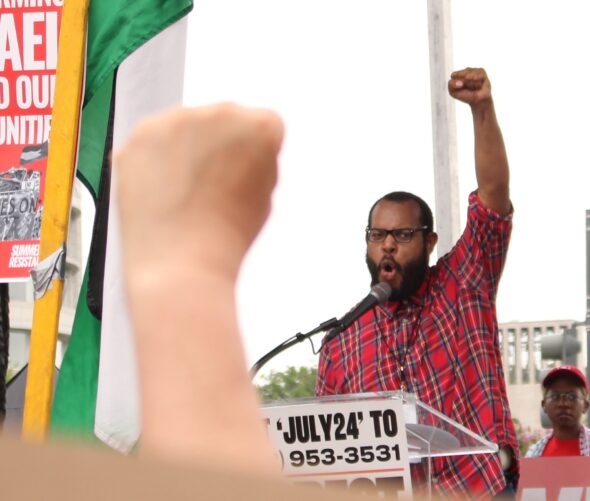
Upon arrival, thousands of protesters gathered outside Capitol Hill, listening to various speakers. Among these speakers included the Green Party’s Presidential candidate, Dr. Jill Stein, and the Party for Socialism and Liberation’s presidential candidate, Claudia De la Cruz. While I won’t dwell upon their harrowingly partisan talking points, I will admit that their passion spoke to me. Hearing these experienced activists and politicians unapologetically preach the political convictions I’ve silently held for so long– changed me. I always felt alone in my beliefs, but that day, I felt seen; even if I was just one overly ambitious photographer in a sea of chants, I felt seen. After the speeches concluded, the thousands of listeners mobilized, marching through the streets of Washington, effectively shutting down the city for several hours.
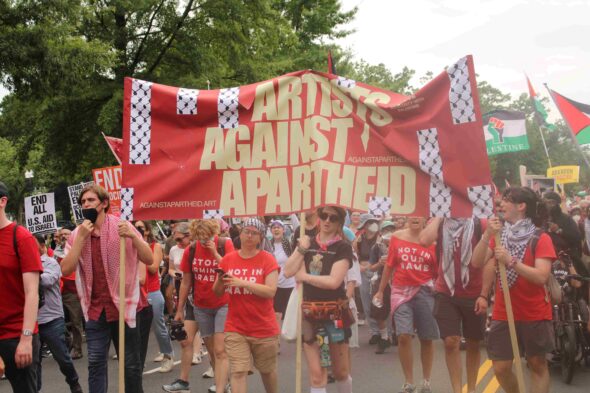
Every turn of events was met with unified adaptation on behalf of the protestors. When word got loose that capital police were using chemical irritants on demonstrators, a protestor, who I didn’t know and could have been from any of the 50 states, gave me and others masks for protection, asking nothing in return. There were four separate instances I can recall where a protestor had gotten hurt, prompting those around them to shout, “Medic!”
On every single occasion, without fail, the hurt individual would have two or three certified individuals come to their aid, asking nothing in return. The mere fact that both parties were there for a unified cause was enough reason to help your fellow man.
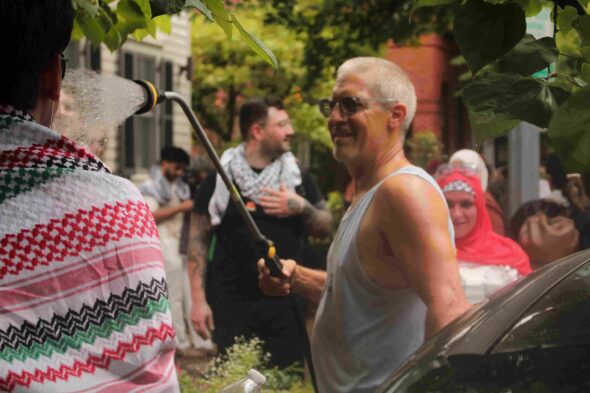
Selfless acts of solidarity weren’t just limited to out-of-town demonstrators, however. Many locals of Washington D.C. sat outside their porches expressing sympathy with the visiting activists, many even offering to cool down protestors with their gardening hoses. Eventually, events between park police and protesters escalated outside the union station, leading to the small group of Jacksonvillians making their exit.
At the end of the day, there was one specific chant that stuck with me– “This is what democracy looks like!”
The unified action, expressions of sympathy, and acts of kindness, all in the face of state repression, made me come to one realization: we can do something. I came to realize that there’s more to life than simply understanding the world— we must also be in the world. If we are to change ‘the system’ (whatever that means to you), then the first step is to unite with other people, lose our mental chains, and act. There’s no fruit in feeling small, alone, or hopeless because, frankly, we aren’t any of those things. We can do much more than we give ourselves credit for.
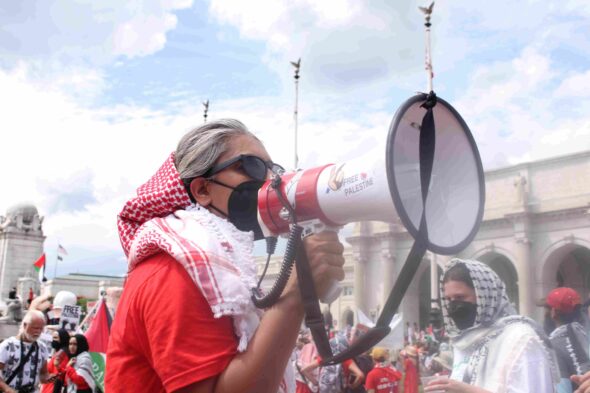
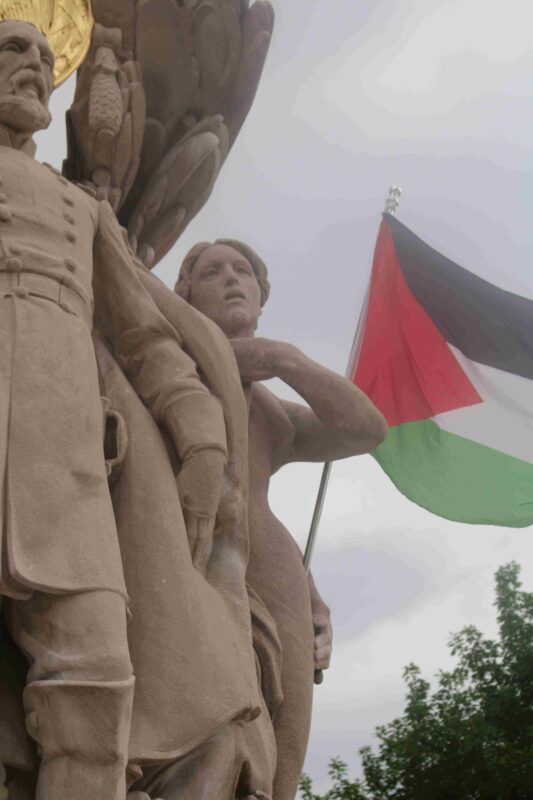
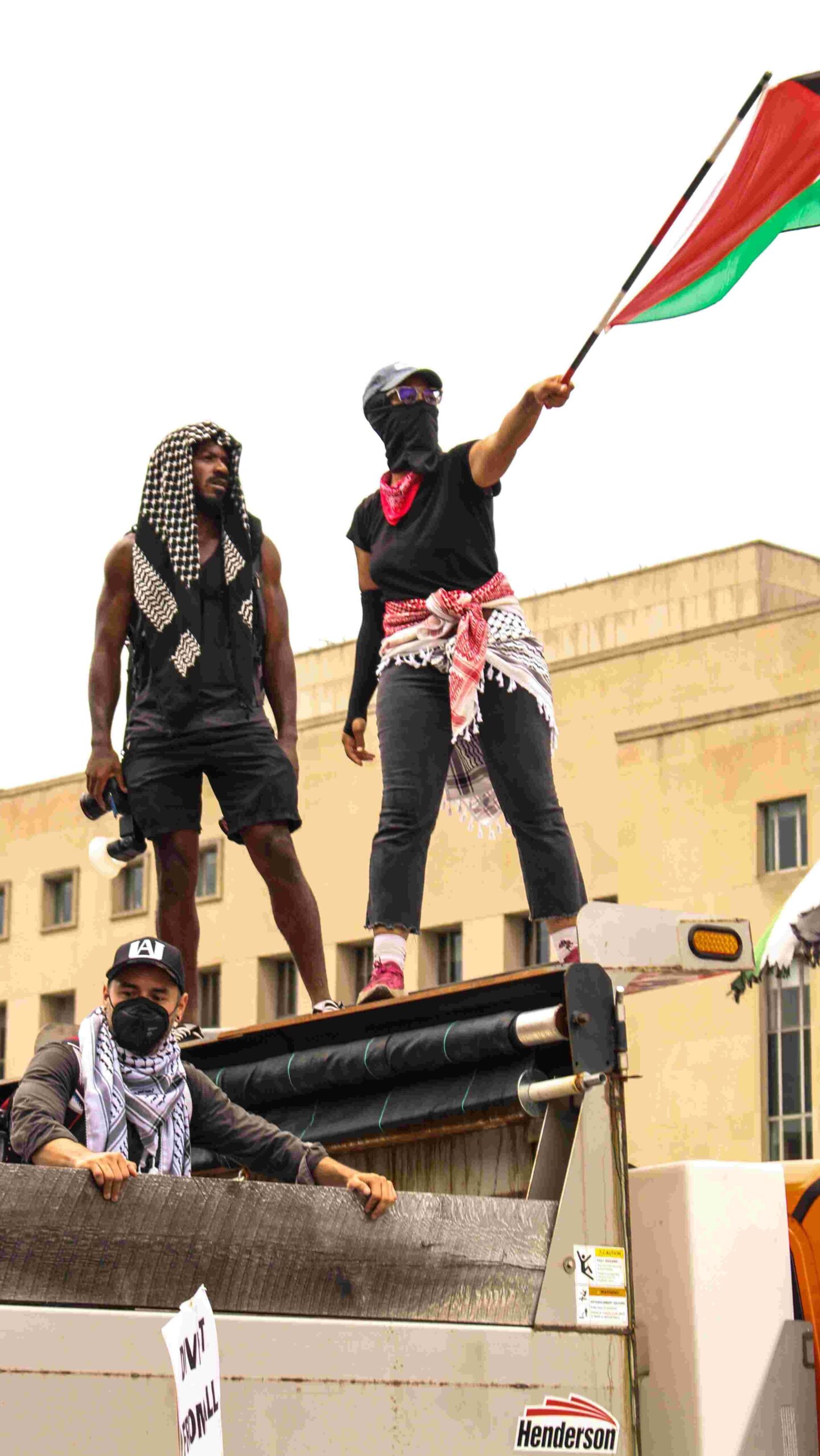

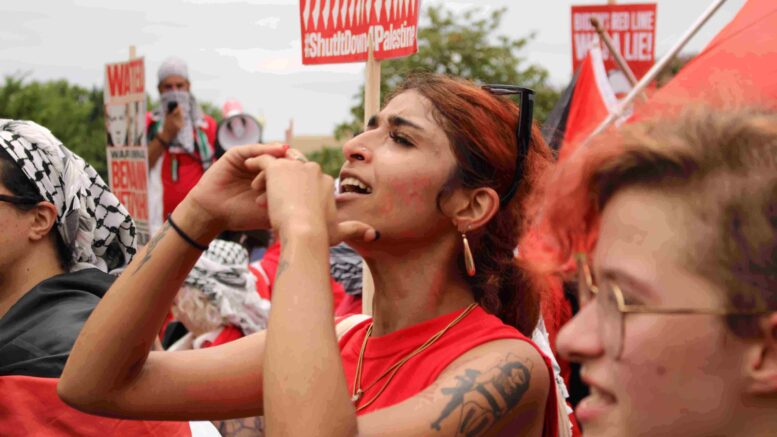

Be the first to comment on "Turning Passion into Action in Washington D.C."